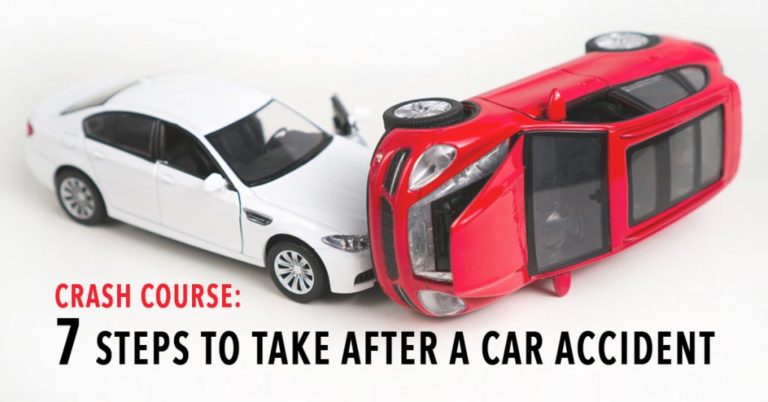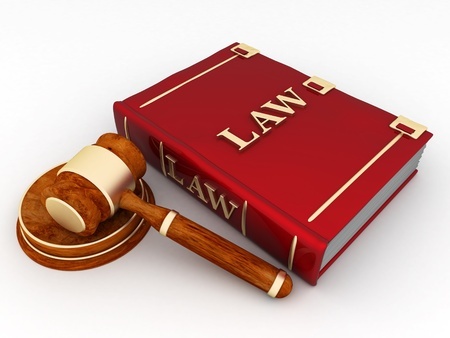The Complete Guide to Filling a Motorcycle Accident Claim
The freedom and liberty of the open road is a temptation that many can’t resist. The exhilarating experience of driving a motorcycle is unlike any other, but this thrill does come at a cost.
Motorcycle accidents can be some of the most devastating types of auto accidents. From distracted drivers to dangerous weather conditions, motorcyclists face a staggering number of hazards on the road – and even the most responsible drivers are at risk.
If you’ve been involved in a motorcycle accident, consider the situation and the severity of your injuries. Depending on the circumstances, you may be entitled to compensation for your pain and suffering and the damage to your bike.
If another driver’s negligence was the cause of your injuries, it’s important to file a personal injury claim against their insurance company as soon as possible.

7 Steps to Take Immediately After a Motorcycle Accident
If you’re injured in a motorcycle crash, it’s crucial to take the necessary steps to protect your interests.
Here’s an overview of what you should do immediately after a motorcycle accident:
1. Check for injuries
Your top priority after an accident should always be to seek appropriate medical attention and request emergency assistance if necessary.
2. Contact the police
Even if you don’t feel injured, call the police. An officer will fill out an accident report which you’ll need for your insurance records and if you choose to file a claim. Don’t leave the scene of the crash until the police have arrived and completed an accident report.
3. Gather information at the scene of the accident
Exchange information with the other driver and take note of their name, contact details, and insurance information.
Obtaining their insurance information is especially important as that company will be responsible for paying any necessary compensation. Don’t forget to record the contact details of any witnesses, as well.
If possible, it’s also a good idea to take photos of your injuries along with any damage to your motorcycle4.
4. Don’t admit fault
The exact cause of an accident isn’t always immediately clear, so be mindful of anything you say to the police, the other party, or witnesses. Statements at the accident scene can seriously affect your claim.
5. Report the incident to your insurance company
When you report the accident to your insurance company, you’ll need to provide the following:
– Names and contact details of the drivers involved
– Location and date of the accident
– Information about any vehicles involved in the accident
– The name and badge number of the police officer on the scene
– The police report number
The insurance company will also require a sworn statement from you describing the nature of the accident, a description of the injuries you sustained, and any medical treatment you received.
Be careful, though – the information you provide can potentially be used against you. The top priority of an insurance adjuster is to pay out as little as possible, so it’s best to consult an attorney before giving a statement to either insurance company.
An experienced personal injury lawyer can advise the best way to provide information, gather evidence, and prove damages to recover the maximum compensation
6. Keep track of all records related to your accident
In order to prove damages in your claim, you’ll need to gather all the necessary records and documentation related to your accident.
This can include medical bills, hospital records, the official accident report, and any bills or receipts for the repair of your motorcycle or other expenses.
7. Schedule a consultation with a lawyer
If you’re not sure how to proceed, contact a personal injury lawyer to help assess your situation. They can help you better understand your rights and avoid any critical mistakes in the early stages of the claims process.
Key Points to Keep in Mind When Filing a Motorcycle Accident Claim
Insurance companies are notorious for blaming motorcyclists in an effort to raise their rates – even if they weren’t at fault.
If your insurance company holds you accountable for the accident, it will affect your insurance rates and become part of your record. Always speak to your insurer and ask to review the company’s accident report.

No matter what type of accident you’ve been in, having an experienced attorney on your side can make a difference in the outcome of your case.
When Should I File a Claim?
If you want to file a personal injury claim against the at-fault party’s insurance company, it’s best to hire an attorney immediately following the accident while the details are still clear in your mind.
A personal injury lawyer will comprehensively review your information and begin to prepare a claim. They will also handle all the heavy lifting so you can focus on what matters most: your health and recovery.
If you wait too long to file a claim, your case could fall outside the statute of limitations and prevent you from ever filing a claim.

Common Causes of Motorcycle Accidents in Ontario
The next time you take that bike for a ride, consider the risks involved.
According to a recent study from the Institute for Clinical Evaluative Sciences and Sunnybrook Health Sciences Centre, motorcycles account for 10% of motor vehicle deaths in Ontario despite making up only 2% of vehicles on the road.
Contrary to popular belief, many motorcycle accidents in the province actually occur during clear weather and dry road conditions.
A wide range of factors can contribute to crashes, but the following are the most common causes of motorcycle accidents in Ontario:
- Alcohol
- Not being seen by other drivers
- Blind spot collisions
- Distracted drivers
- Misjudging corners/entering a corner too fast
- Loose gravel or poor road conditions
- Rear-end collisions due to speeding, fatigue, or reckless driving
- Inexperienced motorcyclists
- Sharing lanes

Essential Motorcycle Safety Tips
Between the speed capabilities of a motorcycle and the lack of protection afforded to the rider, it’s easy to see why motorcycle drivers face a greater risk of severe injury or death on the road.
To reduce your risk of accident or injury, keep these three safety tips in mind:
- Maintain your motorcycle. Before you hit the road, check your tire pressure and fluid levels, and ensure your headlights, brake lights, brakes, and turn signals are working properly.
- Always wear a helmet. Make sure your helmet meets the country’s specific safety regulations.
- Drive defensively. Simply obeying the rules of the road isn’t always enough to avoid accidents. You must be acutely aware of the vehicles around you at all times.
For a more comprehensive list, read this post: Top 7 Motorcycle Safety Tips That Might Save Your Life.
Ready to File a Motorcycle Accident Insurance Claim? Conte Jaswal Can Help
If you or a loved one have been involved in a motorcycle accident, we can evaluate your case to determine whether you have grounds for a claim.
Our experienced personal injury lawyers have the knowledge and resources to fight for the compensation you deserve.
Contact us today for a free, no-obligation consultation to discuss your options.





